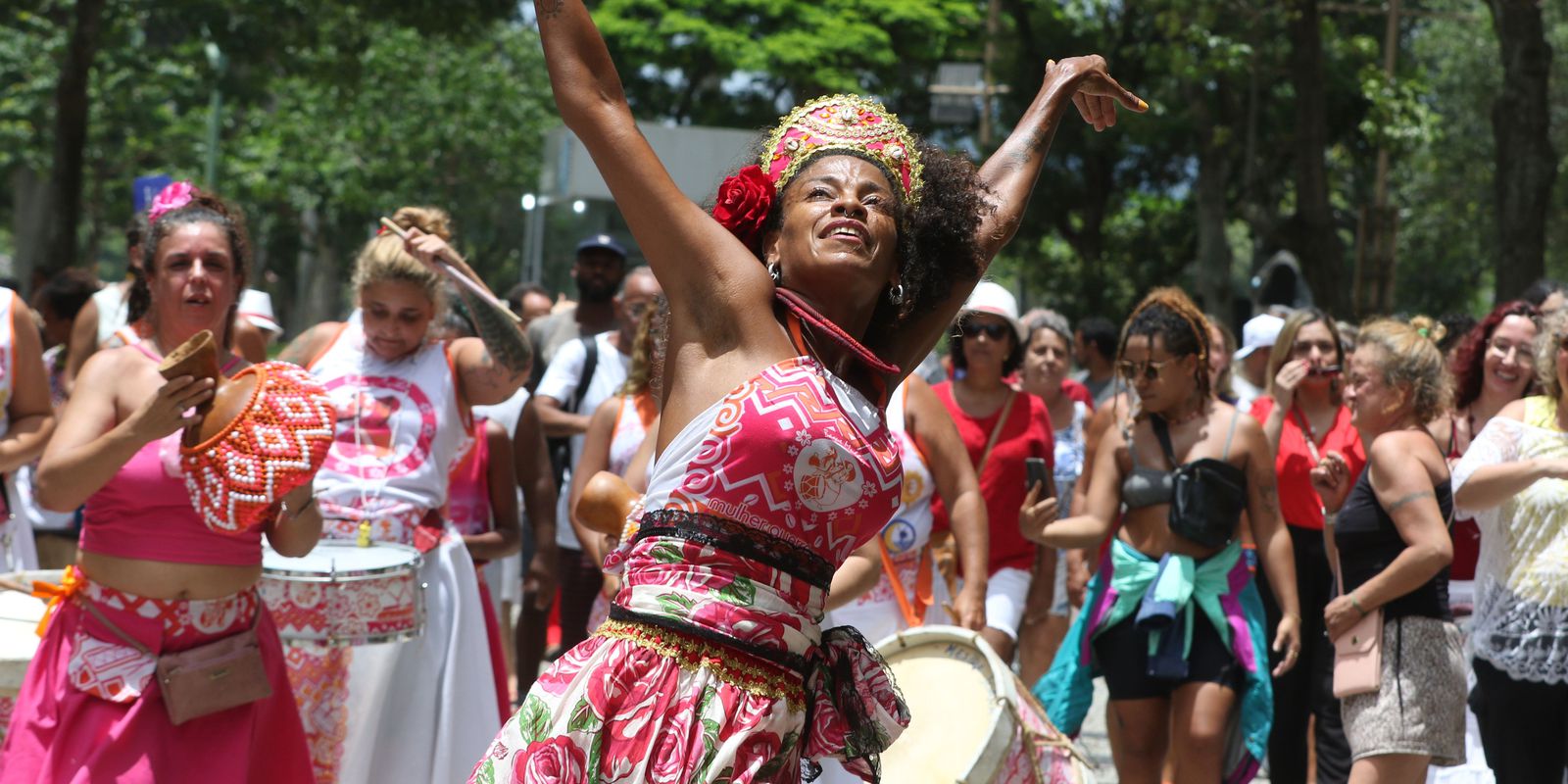The 2nd Procession of Zé Pelintra, which began the walk at Arcos da Lapa and continued through the streets to Cinelândia, in downtown Rio de Janeiro, brought together today (21) devotees of one of the most popular entities of African-based religions and who face discrimination because of faith. At the end of the procession, there was an ecumenical act against religious intolerance.
The Sanctuary of Zé Pelintra, which organized the procession, had the support of the Commission to Combat Religious Intolerance and the Center for Coordination of Marginalized Populations (Ceap).
Zé Pelintra, which is one of the best-known entities of African-based religions, especially Umbanda, emerged in the Northeast, but it was in Rio de Janeiro that it became popular. Seu Zé, as he is called by some devotees, represents the figure of a bohemian, rascal, samba dancer, dressed in a white suit, red tie, panama hat and pointy shoes.
“Today we are united by faith to give a social response to those who want to ban anything that is based on everyone’s love for their faith. I am very grateful and may Zé Pelintra and my father Oxalá always give good goals to your lives, health, prosperity and much unity”, said the institutional president of the Sanctuary of Zé Pelintra, in Lapa, in the center of Rio, Diego Gomes.
The babalawo (pai de santo) and professor and doctor in Comparative History at the Federal University of Rio de Janeiro (PPGHC/UFRJ), Ivanir dos Santos, recalled that the National Day to Combat Religious Intolerance was established in Brazil by Federal Law No. 11,635, of December 27, 2007, after the death of the Iyalorixá from Bahia and founder of Ilê Asé Abassá, Gildásia dos Santos e Santos, known as Mãe Gilda. She had her house and yard invaded by a group of another religion. After persecution and verbal aggression, Mãe Gilda died of a massive heart attack.
“It became a national combat day. The important thing for us is diversity. There is no democracy with religious intolerance. There is no democracy with misogyny, with racism, with homophobia. Democracy only exists with a secular state and diversity”, he said.
The president of the Palmares Foundation, João Jorge, said that every effort for religious freedom is something civilizing and must be part of modern Brazil.
“It is a step forward, we live in a period of hatred and even religious hatred, we have to be now, family, nation, culture and religion”, he said, adding that the function of the Palmares Foundation is to defend, publicize and support nationally the values against intolerance. “It is necessary that Brazilians understand the dimension of religious freedom of each person”.
government commitment
According to the Ministry of Human Rights and Citizenship (MDHC), it is the government’s commitment to “reiterate respect for all expressions of faith and enforce the secularity of the Brazilian State”. According to the folder, data from Disque 100 indicate that in the last two years there has been a 45% increase in acts of religious intolerance. “In this sense, the new management of the Ministry of Human Rights and Citizenship (MDHC) reiterates the commitment to respect the various religious manifestations or even the absence of belief”, he assured.
Complaints
Anyone wishing to report cases of religious intolerance can access the National Human Rights Ombudsman (ONDH), which is the sector of the ministry that receives complaints from society against all types of violence and houses the Dial 100. service, there are only 113 records of violations motivated by religious intolerance. The numbers refer to the entire year of 2022, which indicates a trend of underreporting,” he warned.
* Collaborated with radiojournalism reporter, Tatiana Alves


















